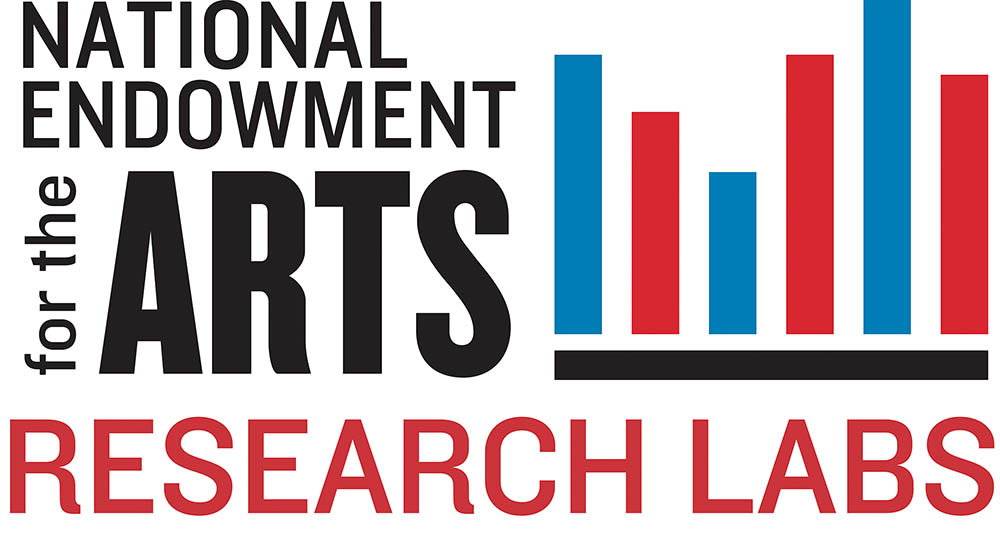The Music, Creativity and Wellness Lab is focused on researching the impact of music therapy interventions on chronic pain and symptom management and investigating underlying mechanisms. Chronic pain is a major health problem that affects approximately 100 million Americans and amounts to a cost of approximately $635 million a year. The Centers for Disease Control and Prevention issued recommendations to move away from opioids and toward non-pharmacological therapies for the management of chronic pain. Music-based interventions such as music listening and music-guided relaxation have been extensively researched for the management of acute pain such as lab-induced pain, procedural pain and postoperative pain. However, to date, few studies have examined the effects of music interventions on chronic pain management. Moreover, intervention studies on music for pain management have focused predominantly on listening to pre-recorded music. A major objective of our lab is to study the impact and underlying mechanisms of interactive music therapy interventions that capitalize on creative music engagement by people with chronic pain and other chronic health conditions.
Principal Investigator
Joke Bradt, PhD, MT-BC
Professor - Creative Arts Therapies
Health Sciences Building, Room 11W11
60 N. 36th Street, Philadelphia, PA 19104
Phone: 267.359.5508
Email: jbradt@drexel.edu
Publications
Online Bibliography
Research on Music Therapy for Chronic Pain Management
Music4Pain Research Network
Funder: National Center for Complementary and Integrative Health and the NIH Office of the Director (U24AT012601)
The purpose of the Music4Pain Research Network is to enhance mechanistic understanding of music for pain management. With the support from the NIH’s National Center for Complementary and Integrative Health and the Office of the Director, over the next five years, Bradt will lead this project and assemble a network of scientists, clinicians and musicians whose expertise spans music therapy, musical pleasure and reward, pain management, pain perception, cognitive neuroscience, behavioral medicine, rehabilitation psychology and neuropsychology with the goal of building foundational knowledge about music-based interventions for pain treatment.
Group Music Therapy for Chronic Pain Management in Service Members with Co-Morbid Chronic Pain and Mild Traumatic Brain Injury
Funder: NEA Creative Forces through the Henry M. Jackson Foundation
The purpose of this mixed methods feasibility study is twofold, namely to 1) examine the feasibility and acceptability of a six-week standardized group music therapy protocol for chronic pain management in active duty service members with mild traumatic brain injury and chronic pain using quantitative and qualitative data, and 2) obtain estimates of treatment effect and variance of the music therapy protocol compared to standard care on pain interference and pain intensity as primary outcomes and pain-related self-efficacy, depression, anxiety, positive affect, patient perception of change, post-concussive symptoms and pain medication use as secondary outcomes. This study will take place at Joint Base Elmendorf-Richardson, Anchorage, Alaska.
Mechanism of Music Therapy to Palliate Pain in Patients with Advanced Cancer (2017-2021)
Funded by the National institute of Nursing Research (R01NR016681)
The purpose of this multisite mechanistic study was to examine mediators and moderators hypothesized to account for pain-reducing effects of interactive music therapy (IMT) in people with advanced cancer who experience chronic pain. Study innovation includes: 1) first music therapy mediation study for chronic cancer pain; 2) use of biomarkers in addition to self-report measures to examine the mediation model; and 3) use of mixed methods research (self-report surveys, biomarkers, and qualitative interviews) to validate and enhance understanding of IMT's theory of action. This study took place at Hahnemann University Hospital and the Jefferson University Sidney Kimmel Cancer Center, both located in Philadelphia.
The impact of music therapy on opioid use in cancer survivors with chronic pain (2018-2021)
Funded by the National institute of Nursing Research (R01NR016681, administrative supplement)
The purpose of the administrative supplement was to test the effects of interactive music therapy versus a social attention control on opioid use in cancer survivors with chronic pain who are chronic opioid users. This study took places at Hahnemann University Hospital and the Jefferson University Sidney Kimmel Cancer Center.
The Effects of Vocal Music Therapy on Core Outcomes on Chronic Pain Management (2012-2014)
Funded by the National institute of Nursing Research (R03NR013551).
This feasibility study was aimed at determining the feasibility and obtaining preliminary efficacy data for an 8-week vocal music therapy treatment protocol for chronic pain management.
Research on Music Therapy for Symptom Management
Music Therapy versus Cognitive-Behavioral Therapy for Cancer-related Anxiety (MELODY) (2021- 2024)
Funded by: Patient-Centered Outcomes Research Institute
This large-scale comparative effectiveness trial is aimed at comparing the short- and long-term effectiveness of virtual music therapy and virtual cognitive behavioral therapy to address anxiety and related symptoms in cancer survivors. We are also trying to identify how individual characteristics (e.g., race/ethnicity, educational background) may affect the treatment results.
This study is led by Dr. Jun Mao of the Memorial Sloan Kettering Cancer Center. Dr. Bradt is co-PI.
The Impact of Music Therapy on Psychological Outcomes and Pain in Cancer Patients: A Mixed Method Study (2012)
Funded by the Drexel University College of Medicine
This comparative pilot study examined the impact of interactive music therapy versus listening to prerecorded music on management of symptoms in cancer patients during active cancer treatment.
Research on Music Therapy for Active Duty Military Service Members with PTSD and TBI (2015-current)
Funded by the National Endowment for the Arts
We have collaborated with the National Endowment for the Arts and music therapy clinicians in their Creative Forces: NEA Military Healing Arts Network to conduct retrospective analyses of music therapy session data obtained at military sites served by Creative Forces. In addition, we have conducted program evaluations on the impact of the Creative Forces art therapy and music therapy programs.
Post-Docs

|
Carol Ann Blank, PhD, MT-BC
|

|
Brigette Schneible, PhD, MT-BC
|
Doctoral Students

|
Sarah Biedka, MMT, MT-BC
|
Students

|
Miranda Lape, graduate student
|

|
Erika Fernau, medical student
|
Intervention Facilitators

|
Allison Millstein, MS, MT-BC
|
|
|
Anna Cephas, MA, MT-BC
|
|
|
Stephenie Sofield, PhD candidate
|
Alumni
-
Noah Potvin, PhD, MT-BC, assistant professor of Music Therapy, Mary
Pappert School of Music | School of Nursing, Duquesne University
(PA)
-
Minjung Shim, PhD, BC-DMT, postdoc, Department of Psychiatry and
Behavioral Science, Stony Brook University (NY)
-
Donna Radl, PhD, ATR-BC, LPC, Expressive Counseling Associations,
owner
-
Kate Myers-Coffman, PhD, MT-BC, assistant professor of Music Therapy,
Molloy College
-
Jacelyn Biondo, PhD, BC-DMT, LPC, postdoctoral research fellow, Thomas
Jefferson University
-
Clarissa Lacson, PhD, MT-BC, assistant cinical professor, Department of
Creative Arts Therapies, Drexel University
- Carrie Cottone, PhD, ATR-BC
- James Lavino, MA, MT-BC
ARTS RESEARCH on CHRONIC STRESS (ARCS) NEA Research Labs

Drexel University is the recipient of an inaugural grant under the
National Endowment for the Arts’ Research Labs
initiative. The lab at Drexel—Arts Research on Chronic Stress (ARCS).
This lab conducts research studies at the intersection of the arts, health,
and social/emotional well-being. In addition to the research studies, the lab
also connect creative arts therapies with community-based arts organizations
to enhance social engagement and overall well-being in those who have been
affected by prolonged stressors such as chronic pain, extended caregiving,
academic stress, and trauma. In the future we will feature findings from the
studies including short-term/interim deliverables; working drafts/final
versions of policy briefs, literature reviews, white papers, technical guide
for the field.
The lead investigators for the studies are Dr. Kaimal, EdD, MA, ATR-BC (PI,
Associate Professor, PhD program in Creative Arts Therapies and Dr. Bradt,
PhD, MT-BC (Co-PI, Professor, PhD program in Creative Arts Therapies).
CURRENT STUDIES: 2019-2021
Art Therapy in a hematology/oncology/bone marrow transplant clinics for
Pediatric, Adolescent, and Young Adult patients: A pilot multi-site mixed
methods observational study
Psychosocial challenges are a well-established concern for pediatric,
adolescent and young adult and hem/onc patients and their caregivers. Medical
art therapy is a clinical intervention that addresses the psychosocial support
needs of patients and families in healthcare settings. There are however, few
systematic studies that have examined clinical outcomes of art therapy for
pediatric, adolescent and young adult patients, families and healthcare
providers, and none that have examined key psychosocial outcomes of art
therapy, such as changes in affect, anxiety, as well as quality of life. The
main objective of this pilot mixed methods observational research study is to
examine the associations between participation in open studio art therapy and
outcomes of psychosocial well-being among pediatric, adolescent and young
adult hematology/oncology patients, families, and healthcare providers. This
study is being conducted in collaboration with Tracy’s Kids, Medstar
Georgetown Hospital, Children’s National Hospital, New York Presbyterian
and Methodist Hospital in San Antonio.
A randomized controlled trial of art therapy for service members with
traumatic brain injury (TBI) and psychological health conditions
TBI has been called the signature injury of OEF and OIF, primarily related to
the increased survival rates of wounded Service Members (SMs) and the
increased number of brain injuries related to blast exposures. Many of these
SMs experience psychological health issues related to both neurologic injury
and psychological trauma associated with combat experiences. To date these
psychological difficulties have been primarily treated through traditional
behavioral health services, although recent research is suggesting that art
therapy is an effective complementary therapy as it allows SMs additional
avenues by which to process, identify, and address their psychological
difficulties using verbal and non-verbal methods. Although art therapy has
been shown to be related to positive health outcomes in program evaluation
studies of active duty military SMs with TBI and post-traumatic stress
additional research is needed to determine its effectiveness with SMs with TBI
and psychological health disorders. With this in mind, the current study
proposes to evaluate the effectiveness of art therapy as a complementary
therapy to standard behavioral health services in service members with TBI and
psychological disorders. The goal of the study is to evaluate the
effectiveness of art therapy as a complement to other behavioral health
interventions in the treatment of psychological difficulties in service
members (SM) with traumatic brain injury (TBI). The study is being conducted
at Camp Lejeune.
The impact of music therapy on post-surgical pain management
In light of the current opioid crisis in the United States, there has been
increased attention to the use of non-pharmacological pain management
interventions following surgery to help prevent the development of persistent
post-surgical pain. Research on the use of music for pain management has been
rapidly growing in the past two decades, but studies on music interventions
for post-surgical pain management to date have been limited to short-term
impact of music interventions (i.e. 1-2 post-operative days). The purpose of
this feasibility study is to examine the impact of a brief music therapy
intervention versus standard care on post-surgical pain management and opioid
use in 24 patients with elective total knee replacement surgery. The music
therapy intervention is led by a board-certified music therapist and is aimed
at teaching surgical patients music-based pain management skills to aid with
pain management following surgery. Study outcomes include pain intensity,
pain-related self-efficacy, physical functioning, and opioid use. Pain
intensity and opioid use will be obtained daily for the first 5 postop days.
In addition, pain intensity, opioid use, physical functioning, and
pain-related self-efficacy will be obtained at 2 weeks, 6 weeks and 3 months
following surgery.
Group music therapy for chronic pain management with military personnel
In 2016, the Centers for Disease Control and Prevention issued
recommendations to move away from opioids and instead use non-pharmacological
therapies for the treatment of chronic pain. The use of music for the
management of chronic pain is increasingly gaining interest but more efficacy
research is needed to encourage healthcare providers to recommend its use to
patients. Moreover, the majority of research studies on music for pain
management to date have focused on the analgesic effects of music for acute
pain conditions (e.g. procedural pain, post-surgical pain) and have
predominantly included civilian populations. The purpose of this feasibility
study is to examine the effects of a 6-week standardized group music therapy
treatment protocol on core outcomes in chronic pain management for service
members at Eglin Air Force Base. The music therapy protocol consists of six
weekly 90-minute sessions with 6-8 participants per group. Sessions are
conducted by a board-certified music therapist. The treatment is based on a
biopsychosocial approach to chronic pain management. Participants engage in
interactive music making experiences specifically designed to address
bioneurological, cognitive, emotional, and social aspects of pain perception
and pain management. The protocol has been tested in civilian populations with
promising results.
COMPLETED STUDIES: 2017-2019
STUDY 1: HEALTH OUTCOMES OF VISUAL SELF-EXPRESSION FOR PATIENTS AND CAREGIVERS
OF PATIENTS WITH CANCER
Girija Kaimal, EdD, MA, ATR-BC led the study on arts-based approaches to
promoting health and well-being for caregivers of patients with cancer. The
study compared outcomes from two brief visual self-expressive approaches with
patients, family caregivers and professional healthcare providers. The study
was conducted in collaboration with the Radiation Oncology Department at the
University of Pennsylvania. Caregivers of patients receiving treatment at the
center, as well as health care providers, were recruited to participate. The
variables to be examined in the study included affect, mood, perceived stress
and indicators of physiological health. The community component of the study
included a public exhibition of artwork created during the study. The aim was
to examine how integration of arts into different aspects of healthcare can
impacted both quality of life and quality of care.
Research team:
Dr. William Levin, MD: Penn Medicine
Juan Muniz, PhD, Lab analyst, Drexel University
Janell Mensinger, PhD, Statistician, Drexel University
Ms. Jess Drass, Graduate Research Fellow, Drexel University
Ms. Rebekka Dieterich-Hartwell, Graduate Research Assistant, Drexel
University
Ms. Katrina Carroll, Graduate Research Fellow, Drexel University
Publications:
STUDY 2: CREATIVE MUSIC ENGAGEMENT TO IMPROVE CORE OUTCOMES IN CHRONIC PAIN
Joke Bradt, PhD, MT-BC will lead a mixed methods study that examines the
effects of a 12-week music therapy treatment (MT) program followed by
participation in community-based music groups compared to a waitlist control
group on chronic pain management. The following outcomes will be measured:
pain-related self-efficacy, pain interference, pain intensity, emotional
distress, physical functioning and participation in social activities. The
feasibility of post-intervention community music engagement in people with
chronic pain will be tracked. Semi-structured interviews will be conducted
with study participants about their experiences of the MT intervention and
their participation in community-based music groups. The purpose of these
interviews is to help explain treatment outcomes and enhance understanding of
possible barriers and facilitators of treatment success. Our community partner
for this project is the Settlement Music School (www.settlementmusic.org), one of the largest nonprofit community schools of the arts in the U. S.
The School provides 10,000 weekly services of individual lessons, classes and
activities in music, dance and visual arts to children and adults throughout
Philadelphia.
Research team:
Fenqing Zhang, PhD, Statistician, Drexel University
Amy Kesslick, MA, MT-BC, music therapy clinician, Stephen and Sandra Sheller
11th Street Health Services, Drexel University
Mark Bottos, MCAT, Zausmer Program Director of the Kardon Center for Arts
Therapy, Settlement Music School
Ming Yuan Low, MCAT, Graduate Research Fellow, Drexel University
Clarissa Karlsson, MT-BC, Graduate Research Fellow, Drexel University
Publications:
Papers, Media, and Technical Reports
Peer-Reviewed Publications
Reflection Papers
DISCLAIMER
The opinions expressed are those of the author(s) and do not represent the
views of the National Endowment for the Arts Office of Research & Analysis
or the National Endowment for the Arts. The National Endowment for the Arts
does not guarantee the accuracy or completeness of the information included in
this material and is not responsible for any consequences of its use.